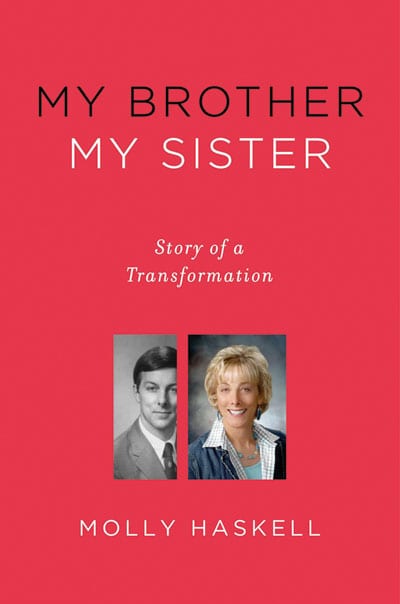 Growing up in Richmond, Va., in the post-WWII years, Molly Haskell, her brother Chevey and their friends enjoyed the same clubs, schools, cotillions, and churches. She remembers a childhood of privilege and happiness. What Chevey remembers is sneaking into Haskell’s closet to try on her clothes.
Growing up in Richmond, Va., in the post-WWII years, Molly Haskell, her brother Chevey and their friends enjoyed the same clubs, schools, cotillions, and churches. She remembers a childhood of privilege and happiness. What Chevey remembers is sneaking into Haskell’s closet to try on her clothes.
Haskell never knew that until years later, when Chevey came to her in New York and told her that something that had vexed him for decades: nervously, he explained that he had gender dysphoria. He’d been on hormones for months. Years ago, he’d thought of himself as “Ellen,” the woman he knew he was inside.
Haskell never saw it coming. Chevey had been married twice. Both wives knew of his feelings, but the second struggled with acceptance. So, in fact, did Haskell: When did Chevey know? (At age 7). Why did he wait 50-plus years? He likened his gender to a “birth defect.” It was time to make things right.
Haskell first mourned the loss of her brother, but realized “my newly minted sister is still the magnificent human being my brother was.”
There’s a lot of hand-wringing in the beginning of My Brother My Sister, but, in the words of the Internet meme, it gets better, ultimately about discovery and acceptance.
— Terri Schlichenmeyer
This article appeared in the Dallas Voice print edition January 31, 2014.















